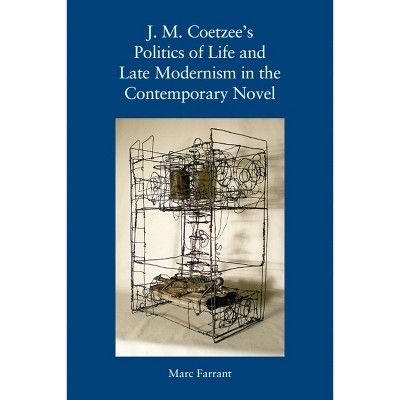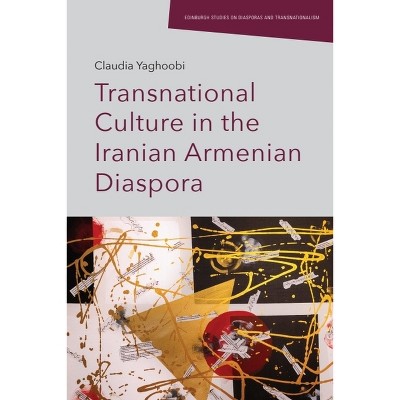About this item
Highlights
- Drawing on the work of Hannah Arendt and Theodor W. Adorno, this book illustrates the relevance and applicability of a political discussion of guilt and democracy.
- About the Author: Claudia Leeb is Assistant Professor in the School of Politics, Philosophy and Public Affairs at Washington State University.
- 256 Pages
- Political Science, Political Ideologies
Description
About the Book
Drawing on the work of Hannah Arendt and Theodor W. Adorno, Claudia Leeb discusses guilt and democracy in the case of Austrian Nazi perpetrators and recent public controversies surrounding Austria's involvement in the Nazi atrocities. She shows us that only by guilt can individuals and nations take responsibility for their past crimes.
Book Synopsis
Drawing on the work of Hannah Arendt and Theodor W. Adorno, this book illustrates the relevance and applicability of a political discussion of guilt and democracy. It appropriates psychoanalytic theory to analyse court documents of Austrian Nazi perpetrators as well as recent public controversies surrounding Austria's involvement in the Nazi atrocities and ponders how the former agents of Hitlerite crimes and contemporary Austrians have dealt with their guilt.
Exposing the defensive mechanisms that have been used to evade facing involvement in Nazi atrocities, Leeb considers the possibilities of breaking the cycle of negative consequences that result from the inability to deal with guilt. Leeb shows us that only by guilt can individuals and nations take responsibility for their past crimes, show solidarity with the victims of crimes, and prevent the emergence of new crimes.
From the Back Cover
A philosophical investigation of dealing with guilt and its impact on democracy Drawing on the work of Hannah Arendt and Theodor W. Adorno, this book illustrates the relevance and applicability of a political discussion of guilt and democracy. It appropriates psychoanalytic theory to analyse court documents of Austrian Nazi perpetrators as well as recent public controversies surrounding Austria's involvement in the Nazi atrocities and ponders how the former agents of Hitlerite crimes and contemporary Austrians have dealt with their guilt. Exposing the defensive mechanisms that have been used to evade facing involvement in Nazi atrocities, Leeb considers the possibilities of breaking the cycle of negative consequences that result from the inability to deal with guilt. Leeb shows us that only by guilt can individuals and nations take responsibility for their past crimes, show solidarity with the victims of crimes, and prevent the emergence of new crimes. Claudia Leeb is Assistant Professor in political theory at Washington State University. She is the author of Power and Feminist Agency in Capitalism (2017), Working-Class Women in Elite Academia (2004), and Die Zerstörung des Mythos von der Friedfertigen Frau (1998). Cover image: Von der Liste Gestrichen, 1933, Paul Klee (c) akg-images Cover design: [EUP logo] edinburghuniversitypress.com ISBN 978-1-4744-1324-4 BarcodeReview Quotes
The Politics of Repressed Guilt represents an amazing achievement and fills a critical void in the existing literature.--Mary Caputi, California State University "Philosophy in Review Vol. 40 no. 2 (May 2020)"
Claudia Leeb's The Politics of Repressed Guilt is an important and timely book, and even a courageous one.--David W. McIvor "Critical Horizons"
Leeb's thought-provoking book engages profoundly with the defense mechanisms vis-à-vis the Nazi past that have shaped Austrian society after the genocide of the European Jews. Leeb hereby effectively employs critical theories by Adorno and Arendt as well psychoanalytic models to shed light on the particular relationship between democracy and repressed guilt, both individual and national, in post-Holocaust Austria. Digging deep into case studies, from court documents on Nazi perpetrators to public controversies on theater plays and museums, Leeb exposes convincingly how the failure(s) to confront one's past and critically process historical guilt have had lasting negative consequences for Austrian democracy. Combining theoretical insights with historical analysis and acute observations, The Politics of Repressed Guilt is an exceptional contribution and welcome addition to critical scholarship that explores the pathological implications of guilt denial for democratic political life.--Lars Rensmann, University of Groningen
Theodor Adorno and Hannah Arendt are the theoretical signposts for Claudia Leeb to take an analytical-critical look at Austria's often failed working through its National Socialism. Courtroom, theater or museum are for Leeb the paradigmatic places of this failure. With her book, the author shows impressively how much a guilty past is a story that is suppressed with great emotional effort - constantly latent and continuously present.--Karl Fallend, FH Joanneum Graz, Austria
Through a critical appropriation of Hannah Arendt, and a more sympathetic engagement with Theodor Adorno and psychoanalysis, Claudia Leeb develops a new theoretical approach to understanding Austrians' repression of their collaboration with National Socialist Germany. Drawing on original, extensive archival research, she astutely analyzes older and more recent examples of Austrians' failure to work through their past, and she demonstrates the damaging psychological and political consequences this failure has had - and continues to have. The continuing electoral growth of the right-wing populist Freedom Party in Austria highlights the timeliness of her impressive study, but the theoretical concepts and practical suggestions she introduces to counteract the repression of individual and collective historical guilt are relevant far beyond the Austrian context.--John Abromeit, SUNY Buffalo State
About the Author
Claudia Leeb is Assistant Professor in the School of Politics, Philosophy and Public Affairs at Washington State University.Shipping details
Return details
Trending Non-Fiction












